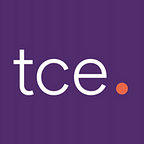Why is it Important that we Discuss Gender in Technology?
The full potential of our technological ability lies in the hands of a multitude of communities that have long been ignored.
Is technology gendered?
Such a bizarre question, especially when you haven’t thought about it. How can a term so disconnected from the limits of “gender” be so intertwined with it?
A year or two back when I got an opportunity to sit amongst women entrepreneurs and hear them talk about women representation in STEAM, I hadn’t realised the disparities that were so clearly visible to the audience. It was only when they posed questions during their presentations did I come to realise the gap that easily slipped past me…
They asked us to recollect some names that we think are influential in our contemporary understanding of technology and science. As expected, the number of women wouldn't even make for 1/3rd the list, very similar to what Sanchia suggested in her article for The Centre for Internet and Society.
Isn’t it a strange thing that on the one hand, we identify science as the domain of the masculine and the male, and the technologies that govern science as feminine in nature? — Gender and Technology by Sanchia de Souza, The Centre for Internet and Society
In the above article, Sanchia urges us to understand the roots of these issues that are penetrating our everyday lives. It’s not to say that women didn’t contribute to the history of computers or technology, there is enough evidence that says otherwise. The shift from being an integral part of technological innovations to majorly being viewed as a consumer of it, with a history that suggests the direct involvement of women in computation and the advent of programming, really draws my attention to why this systemic shift took place at all.
These gender biases that loom over us to this day, have no factual backing and as a generation that has constantly questioned biases, it’s time to relook at history and acknowledge all contributions.
I quote Sanchia once again in her apt question of,
“What are the institutional processes that keep women’s contribution, labour and efforts within a technology domain as invisible?”
…and how many similar contributions will never get to see the light of day?
It is vital that we notice these loopholes before they also engulf minorities that are slowly reclaiming their place in society. It is our responsibility to stand up for the contribution made by each member, irrespective of gender.
At a time where we are slowly (and fortunately) seeing a positive shift in perceptions of the LGBTQ+ communities with conversations around these important topics, it also brings us to the question of how often we’ve talked about their own representation in STEAM? With years of underrepresentation of women in tech, I wonder how many years we will take to acknowledge other groups in this space…
Tech still has an issue with gender diversity, which also means we are limiting our creative potential.
How do we break the cycle?
Our biases stem from “not knowing” or lack of knowledge. As long as we turn a blind eye to this issue, we will continue to feed into the half-truths, whose consequences will be experienced by future generations to follow.
The omission of women from the history of computer science perpetuates misconceptions of women as uninterested or incapable in the field — Jennifer S. Light
As the largest consumers of tech, let us use our consumer power to call out biases, encourage participation from all groups and welcome with open arms dynamic ideas that sprout from groups that have faced years of discouragement and discrimination.
How can we reverse its effects from influencing this generation?
We have to start by first unlearning the negotiated gender identities forced upon us by society;
As long as we would treat femininity and masculinity as a dichotomy and refuse to encompass and celebrate the variety of gender diversity that exists along the male female spectrum, we can say good bye to gender equality. — Pragya Mishra in GENDER BENDER: LOOKING BEYOND THE BINARY
Second, by questioning existing assumptions associated with gender especially in STEAM and lastly, by acting against the status quo!
The full potential of our technological ability lies in the hands of a multitude of communities that have long been ignored. We can never achieve the dream of gender equality if the tech sector itself succumbs to the general bias. Our first step as always will be to learn and then find solutions to minimise the gap.
How is tce helping achieve this? We involve students in the process of design thinking and open avenues for participation in our Youth Leadership Program where they can voice their opinions and bring about change through technological solutions. Check us out here!
